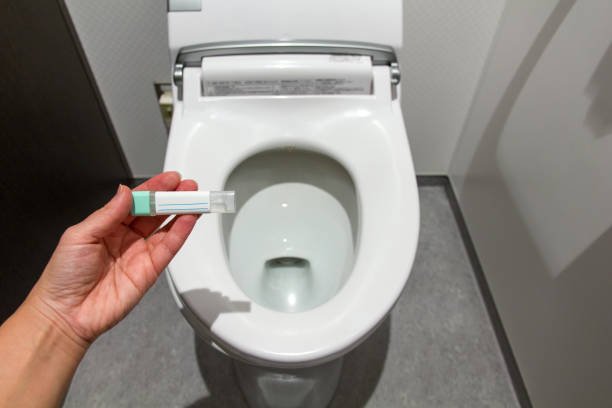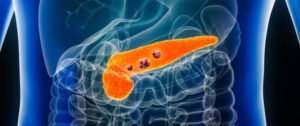
Should People Under Fifty be Careful? 9 Common Myths About Colorectal Cancer
There are many misunderstandings and myths about colorectal cancer, which may lead to people having wrong medical knowledge about the disease, and even delay or prevent colorectal cancer patients from receiving corresponding diagnosis and treatment. Here are nine common colorectal cancer myths. If you have any questions, please consult a professional doctor.
Is colorectal cancer fatal?
The cure rate for early-stage colorectal cancer is actually quite high. According to the American Society of Colon and Rectal Surgeons (ASCRS), 91% of patients with localized colorectal cancer have no cure within five years after diagnosis. die.
However, only 37% of patients with colorectal cancer can be diagnosed in the early stages. Most patients with colorectal cancer often receive screening tests at a later stage. However, when cancer cells begin to spread outside the intestinal wall or metastasize to other parts of the body, treatment will be difficult. becomes more difficult.
Is there no way to prevent colorectal cancer?
Colorectal cancer is preventable. Most cases start as colorectal polyps and slowly grow into cancer cells. Regular screening can detect them early and remove the polyps before they become cancerous. Generally speaking, colorectal polyps can be removed through colonoscopy. If the polyps are relatively large, the doctor may first remove them through an endoscope, and finally consider surgical removal of part of the large intestine or rectum. Other ways to prevent colorectal cancer include choosing low-fat foods, eating more fruits and vegetables, and exercising regularly.

Will people under the age of 50 not get colorectal cancer?
It is true that most colorectal cancer patients are over 50 years old, but this does not mean that people younger than 50 years old will not suffer from colorectal cancer. In recent years, the incidence rate of colorectal cancer among people under the age of 50 has gradually increased. The reason is unknown, but it is speculated that it is caused by changes in eating habits, or it may also be related to factors such as genetic diseases, smoking, and obesity.
New research suggests that certain foods can negatively impact the microbiome, or bacterial populations, in the large intestine, which may increase the risk of colorectal cancer. Therefore, if you notice any abnormalities in your gastrointestinal tract, please be sure to consult a professional physician. As for those who have a history of colorectal cancer in their family, they may need to undergo colorectal cancer screening early because their risk of developing cancer is higher than that of the general population.
Do Only Men Get Colorectal Cancer?
Both men and women are likely to suffer from colorectal cancer. The incidence rate may be slightly higher in men, but it is not a male-only disease. In fact, a high proportion of women get colorectal cancer.
Will you get colorectal cancer if you have a family history of it?
of course not. ASCRS points out that if the risk factor of age is excluded, about 75% of new cases of colorectal cancer have no risk factors, and a family history of colorectal cancer simply requires early screening, including more frequent relevant testing.
Does red meat increase colorectal cancer risk?
Research evidence shows that eating red meat or processed meat will increase the risk of colorectal cancer: eating 100 grams of red meat per day will increase the chance of cancer by about 17%, especially when eating more than 500 grams a week, the risk of accidentally consuming carcinogens is Risks will also increase.
According to American Fred. According to data from the Fred Hutchinson Cancer Research Center, this is most likely due to bad chemical components produced by high-temperature cooking, or the heme iron in red meat, which promotes the growth of cancer cells. growing up. Therefore, it is recommended not to consume more than 50 grams of red meat a day and to eat more fruits, vegetables and whole grains to reduce the risk of colorectal cancer.
Should you be screened if you have symptoms of colorectal cancer?
Colorectal cancer is almost asymptomatic in its early stages and usually takes several years to develop before symptoms gradually appear. However, by this stage, colorectal cancer has mostly become difficult to treat. It is recommended that both men and women should start regular colorectal cancer screening at the age of 45. If there is a history of inflammatory bowel disease, a family history of colorectal cancer, or if the woman herself or her family has ovarian cancer, endometrial cancer, or breast cancer, they must Get screened before the age of 45. For exact colorectal cancer screening details, please follow the instructions of a professional physician.

Is colonoscopy the only screening method?
Of course, colorectal cancer screening methods are not limited to colonoscopy. Other screening methods include: stool testing, computed tomography colonography (also known as virtual colonoscopy), flexible sigmoidoscopy, etc.

Professional doctors will choose a suitable examination method based on the patient’s health status and acceptance. However, colonoscopy is still the most commonly used method because it can detect colorectal polyps and cancer cells in a wide range, and if polyps are found, they can be detected immediately remove.
Will the colonoscopy procedure be painful?
Before colonoscopy, professional doctors usually give sedatives to relieve the patient’s discomfort, so the patient will not feel pain and will not even remember the examination process. However, even without sedatives, the process is still tolerable. .
A colonoscopy lasts about 30 minutes, and you can usually resume your daily activities by the next day. The most painful thing is the day before the colonoscopy, because the patient needs to take laxatives to help clear the intestines so that the next day’s examination can go smoothly, but the price is frequent bowel movements, and the patient will feel uncomfortable for a few days after the examination. Flatulence.











